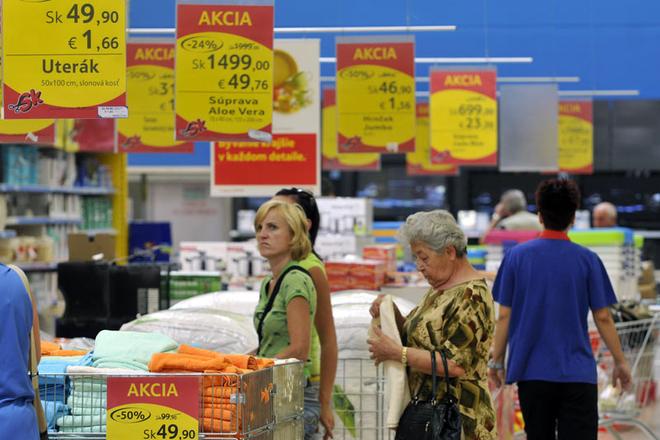THE GOVERNMENT is to set up a new body to fight against what it sees as one of the threats during the euro switch in Slovakia: unjustified price hikes and speculation. The so-called price council that the cabinet of Robert Fico approved in early July will bring together the ministers of education, finance, transport, economy, agriculture and health with each of them watching prices within their own departments.
“The government will uncompromisingly intervene against the unjustified increase of prices in the private sector,” reads the official cabinet document. “The basic role of the government is to protect the citizens from such practices, which germinate from an imperfect market environment.”
While the government says that the price council, which is defined as an advisory body, should not deform the business environment by preventing a natural increase in prices, businesses say that setting up a price council is abnormal and that competition will always remain the best form of price regulation.
The council will analyse and monitor prices and submit recommendations to the government when the price of any commodity rises above justified levels, the government said.
The price council does not have the authority to regulate prices, Prime Minister Robert Fico told the public service Slovak Television (STV), adding that “as far as regulating is concerned there are relevant bodies to do so.”
Price regulation is already possible based on existing legal measures, the prime minister added.
Employer unions and business associations have on several occasions declared that their members will restrain from any abuse of the euro switch to hike prices.
The president of the Association of Trade and Tourism, Pavol Konštiak, restated that it is not necessary to regulate prices in areas where there are not natural monopolies or businesses with dominant positions, the Sme daily reported.
Businesses say there are other ways to keep prices under control.
“The act of monitoring prices is in fact not a problem; after all the Statistical Office has been doing that and, based on the monitoring, it publishes inflation data,” Executive Director of the Slovak Business Alliance Robert Kičina told The Slovak Spectator. “But price regulation is dangerous for the business environment since it threatens the free creation of prices, which is one of the basic rights of the seller in a competitive environment.”
Another problem might be that regulation of prices only postpones an eventual increase till the end of the regulation, leading to a jump in prices, Kičina said.
According to Kičina, in a functioning market economy and competitive environment the establishment of a so-called price commission is not a normal move.
“Instead of explaining the benefits of the euro, the government, thanks to such steps, is creating the impression that business wants to use the euro switch to increase prices, which in fact is not true,” said Kičina. He referred to declarations by trade representatives that they would not increase prices during the forthcoming year.
The only effective way to avoid so-called speculation is to strengthen competition by improving the business environment and removing barriers to doing business.
“Competition is the best price regulation, which moreover works automatically,” Kičina said.
According to Kičina, the state in fact fulfilled its role when when it installed the dual display of prices, which will last until the end of next year. This gives citizens the opportunity to get used to the new currency and monitor the behaviour of businesses, Kičina added.



 (source: ČTK)
(source: ČTK)